Table of Contents
Introduction: India’s Leap Into Human Spaceflight
India is poised to make history as it steps into the elite league of nations capable of sending humans into space. The Gaganyaan Mission 2025 marks a monumental milestone in the country’s ambitious space journey. With the latest ISRO Gaganyaan update suggesting a crewed flight test as early as August, India’s space aspirations are taking firm shape. This mission not only represents technological excellence but also a statement of India’s growing clout in global space affairs.
The successful launch and return of Indian astronauts under India’s first human spaceflight program will elevate ISRO into a new orbit, both literally and diplomatically. As the nation anticipates this landmark, all eyes are on the upcoming Gaganyaan crewed mission and its potential to redefine the Indian space narrative.
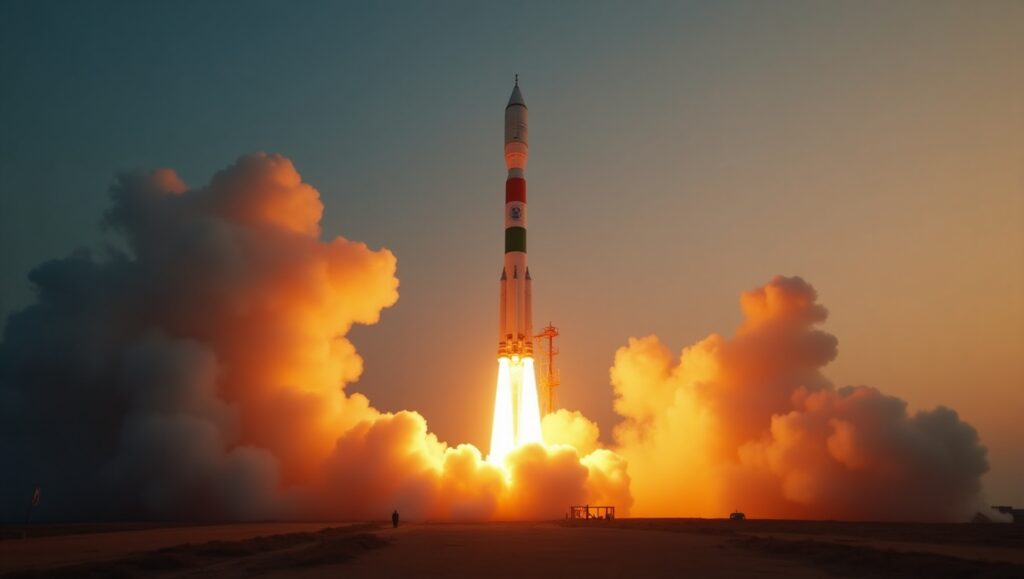
What Is the Gaganyaan Mission 2025?
The Gaganyaan Mission 2025 is India’s first attempt to send humans into space aboard an indigenous spacecraft. The mission aims to place a three-member crew into a low Earth orbit (LEO) of approximately 400 km for a duration of up to seven days, followed by a safe return to Earth.
It is a bold leap in India’s space journey and places the country alongside space giants like the USA, Russia, and China. While NASA is working on the Artemis program and Russia continues with Soyuz, Gaganyaan Mission 2025 is India’s assertion of capability and vision.
The mission embodies India’s move from robotic space exploration, such as the Mars Orbiter Mission and Chandrayaan, to human-centric expeditions. It is not merely a technical achievement but a statement of national strength.
Why 2025 Matters: The New Timeline Explained
Initially scheduled for 2022, the mission was delayed due to the global COVID-19 pandemic, supply chain disruptions, and the need for further technical refinements. The new Gaganyaan mission timeline sets 2025 as the target for the first full crewed mission, following a series of critical preparatory steps.
Key Milestones:
- 2018: Pad Abort Test
- 2022: Static and propulsion system tests
- 2023: Service module tests and environmental simulations
- 2024: Uncrewed test flights and abort demonstrations
- 2025: Crewed orbital flight
The ISRO mission 2025 strategy now reflects a realistic and achievable pathway, combining safety with technological readiness. ISRO has consistently updated the public through the Gaganyaan latest news, highlighting transparent progress.
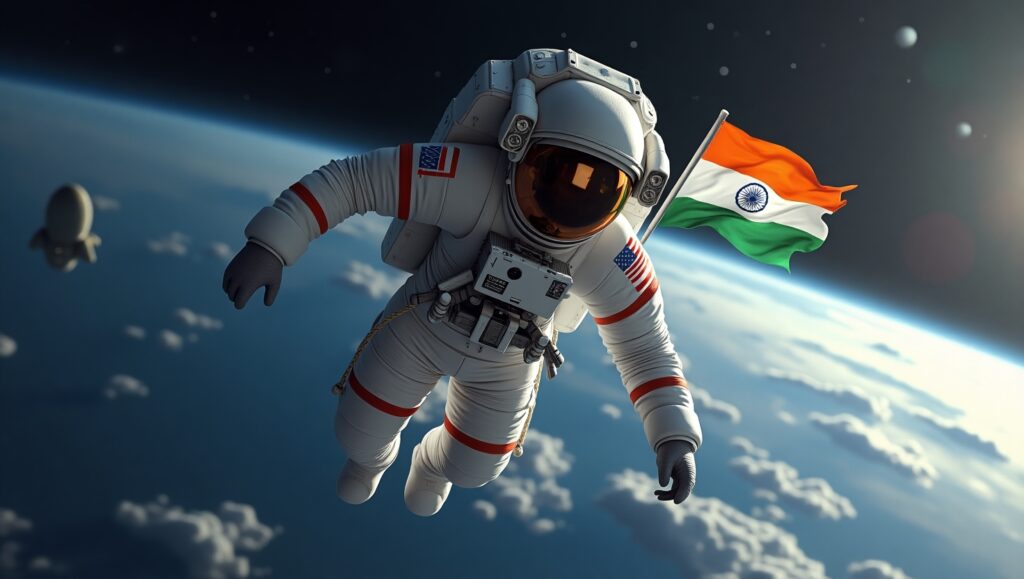
August Crewed Test Flight: What We Know So Far
According to the most recent ISRO Gaganyaan update, a test flight involving human crew elements is scheduled for August 2025. This mission may not be the full orbital one, but it will validate key technologies in a suborbital or low Earth trajectory.
Mission Details:
- Launch Site: Satish Dhawan Space Centre, Sriharikota
- Rocket: Human-rated LVM3 (HLVM3)
- Mission Type: Possibly suborbital or orbital shakedown
- Duration: A Few minutes to a few hours, depending on mission design
This Gaganyaan test flight is critical to certifying systems like crew module stability, life support, thermal shielding, and safe re-entry mechanisms. The Gaganyaan crewed mission will then move closer to a full orbital launch.
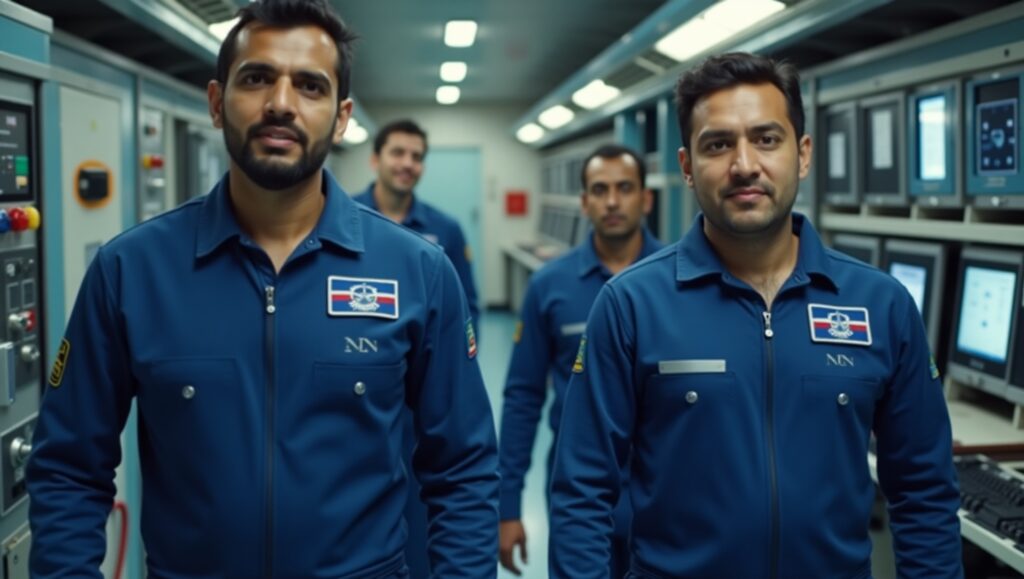
Who Will Fly? The Astronaut Selection and Training
Four Indian Air Force pilots were selected through a stringent process and underwent training at Russia’s Gagarin Cosmonaut Training Center. The candidates are undergoing ISRO astronaut training, which includes:
- Microgravity simulations
- Hypobaric chamber exposure
- Survival training in sea and jungle environments
- Spaceflight dynamics and emergency drills
These astronauts will represent India in India’s first human spaceflight and carry the hopes of a billion people. The psychological and physical conditioning required is immense, considering the risks involved in the Gaganyaan human space mission.
While the final names have not been officially disclosed, they are expected to be announced closer to the actual flight.
Inside the Gaganyaan Crew Module
The crew module, the heart of Gaganyaan Mission 2025, is designed with cutting-edge safety and life support features. It has:
- An environmental control and life support system (ECLSS)
- Thermal insulation and heat shields for re-entry
- Emergency escape systems for crew safety
- Crew displays, consoles, and health monitoring interfaces
Collaborations with DRDO, Hindustan Aeronautics Limited (HAL), and private aerospace companies have strengthened the design architecture.
This segment of the Gaganyaan Mission 2025 demonstrates India’s prowess in complex aerospace manufacturing and human-rated system development.
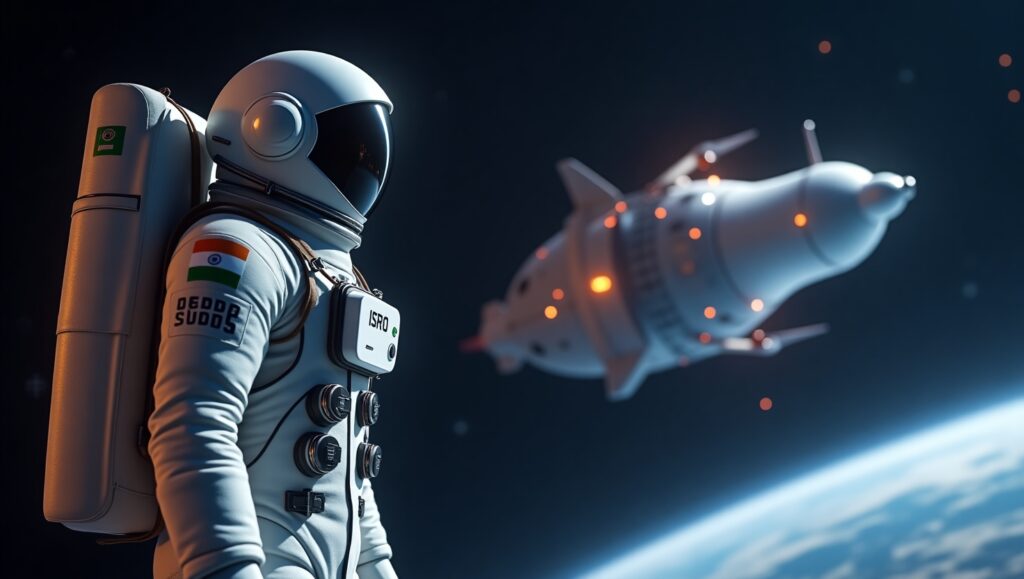
The Road So Far: Key Tests & Achievements
The Gaganyaan latest news reflects a series of successful preparatory missions:
- 2018: Pad Abort Test verified emergency ejection capability
- 2022: Static fire tests for solid booster and LVM3 stages
- 2023: Environmental testing of service module components
- 2024: Integrated test flights without crew
The ISRO Gaganyaan update mentions major industrial collaborations:
- HAL built the crew module structure
- L&T developed components for launch and abort mechanisms
These developments are stepping stones in the Indian space mission 2025, showing strong inter-agency coordination.
Global Significance of Gaganyaan Mission 2025
When Gaganyaan Mission 2025 succeeds, India will become the fourth nation to achieve independent human spaceflight capability. This is significant not just for ISRO but for:
- Geopolitical Power Projection
- Science Diplomacy
- Commercial Aerospace Opportunities
India joins a global club where Gaganyaan crewed mission stands alongside NASA’s Artemis, China’s Tiangong, and SpaceX Crew Dragon missions.
The mission aligns with India’s aim to be a major player in the global space economy, estimated to cross $1 trillion by 2040.
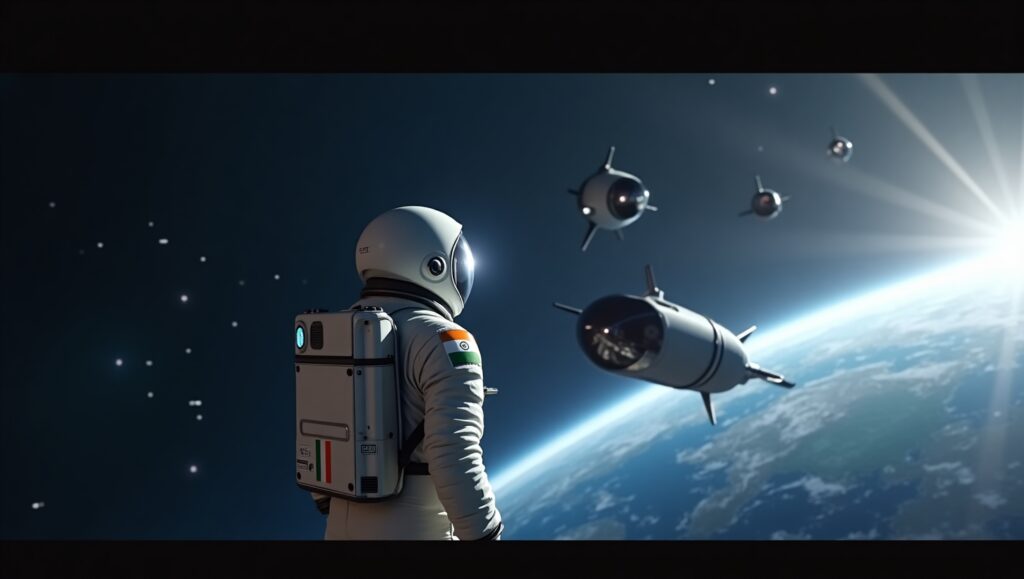
Challenges Ahead: Risks and Rewards
Despite optimism, the Gaganyaan human space mission faces major challenges:
- Developing and testing human-rated systems
- Managing life support in microgravity
- Crew psychology and isolation stress
- Financial and political pressures
But the rewards are transformative:
- Global recognition
- Scientific discoveries
- Technological advancements for civilian use
Public trust and awareness are kept alive through regular Gaganyaan latest news. This transparency is vital to the mission’s momentum.
What Comes After: Beyond 2025
ISRO’s plans extend beyond Gaganyaan Mission 2025:
- 2027: Second human spaceflight mission
- 2030: Indian space station module planning
- 2030s: Lunar and interplanetary exploration
The roadmap includes:
- Public-private partnerships
- Expansion of ISRO’s Human Spaceflight Centre (HSFC)
- Greater involvement in international space forums
As part of the evolving Gaganyaan mission timeline, future Gaganyaan test flights will refine and extend capabilities. The Indian space mission of the 2025 era could be the launchpad for multi-decade ambitions.
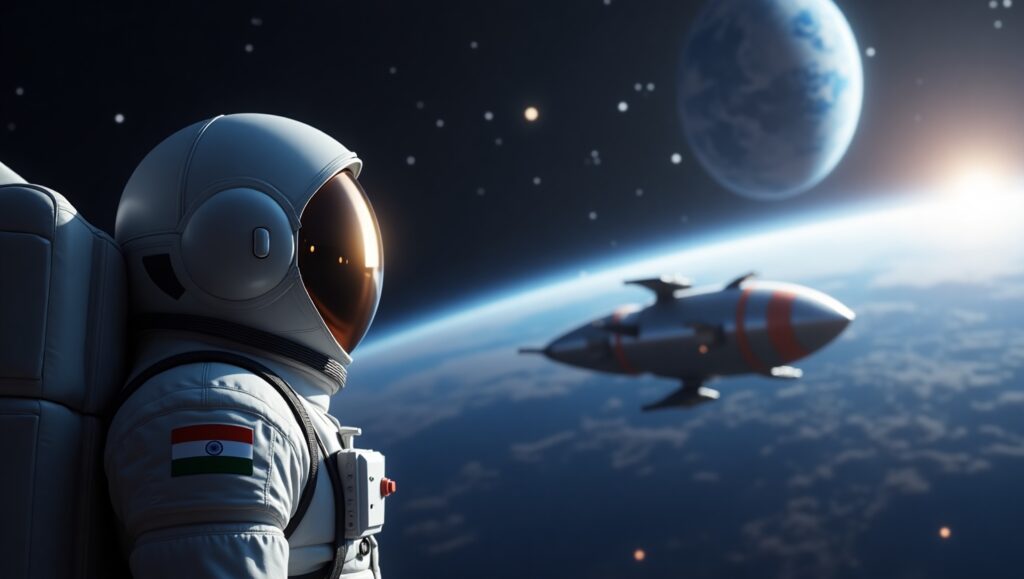
Conclusion: A Nation on the Launchpad of History
The Gaganyaan Mission 2025 isn’t just a project; it’s a national movement toward space leadership. As we inch closer to the crewed test in August, excitement builds across scientific communities and the general public.
With years of groundwork, from ISRO astronauts’ training to successful system tests, India is on the cusp of a historic breakthrough. The ISRO Gaganyaan update confirms that the nation is nearly ready to send its first humans into space.
In the words of former ISRO Chairman Dr. K. Sivan, “Gaganyaan will be a milestone not just for ISRO but for the entire country. It will inspire generations to dream beyond the skies.”
This Gaganyaan human space mission is India’s boldest stride yet—a mission born of science, powered by passion, and destined for greatness.
Also Read:
Airtel Perplexity Pro Subscription: Free Pro Access Worth ₹17,000 for All Users!
Top Dividend Stocks to Watch After Airtel’s ₹16 Payout in 2025






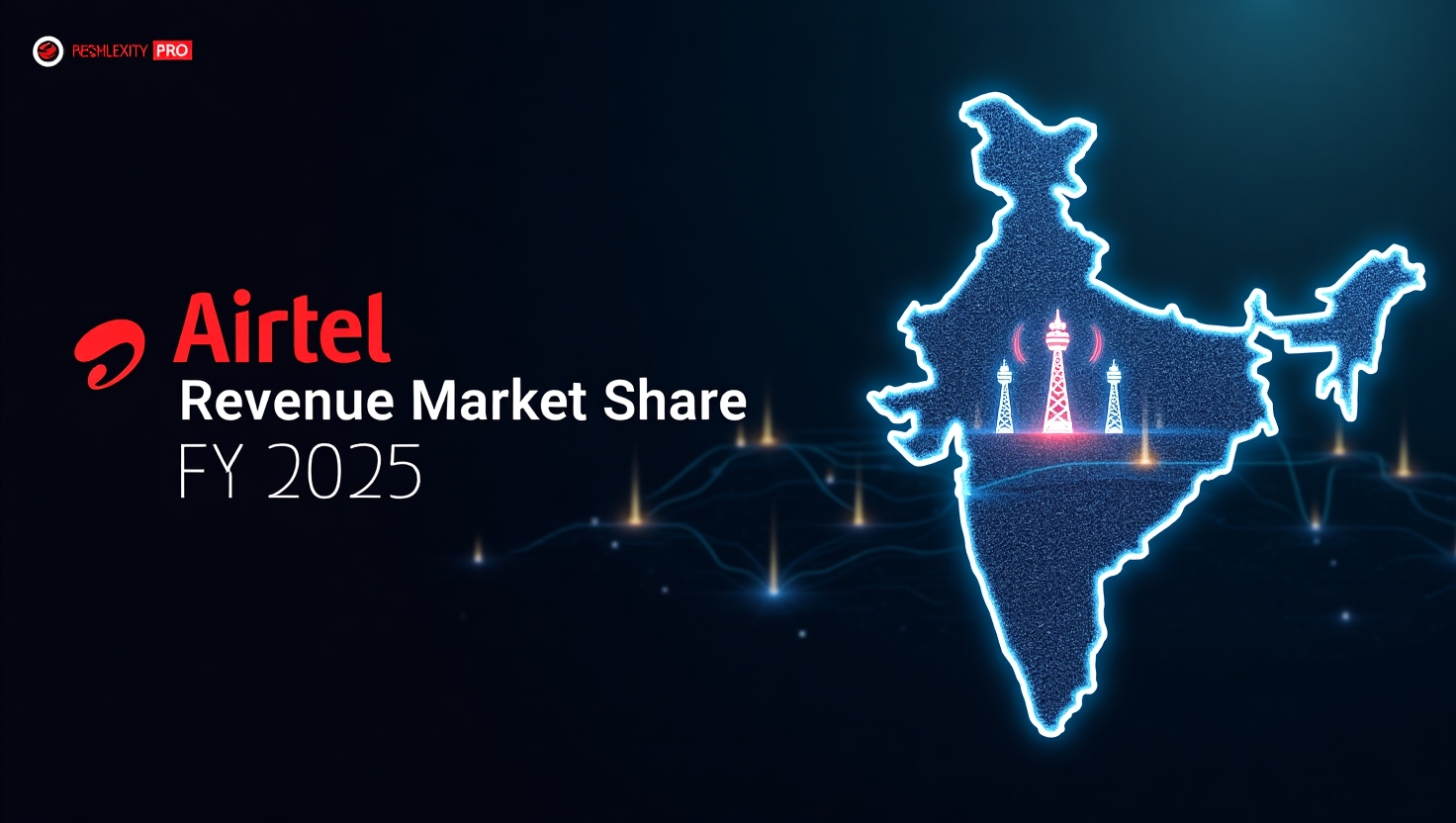






Leave a Reply